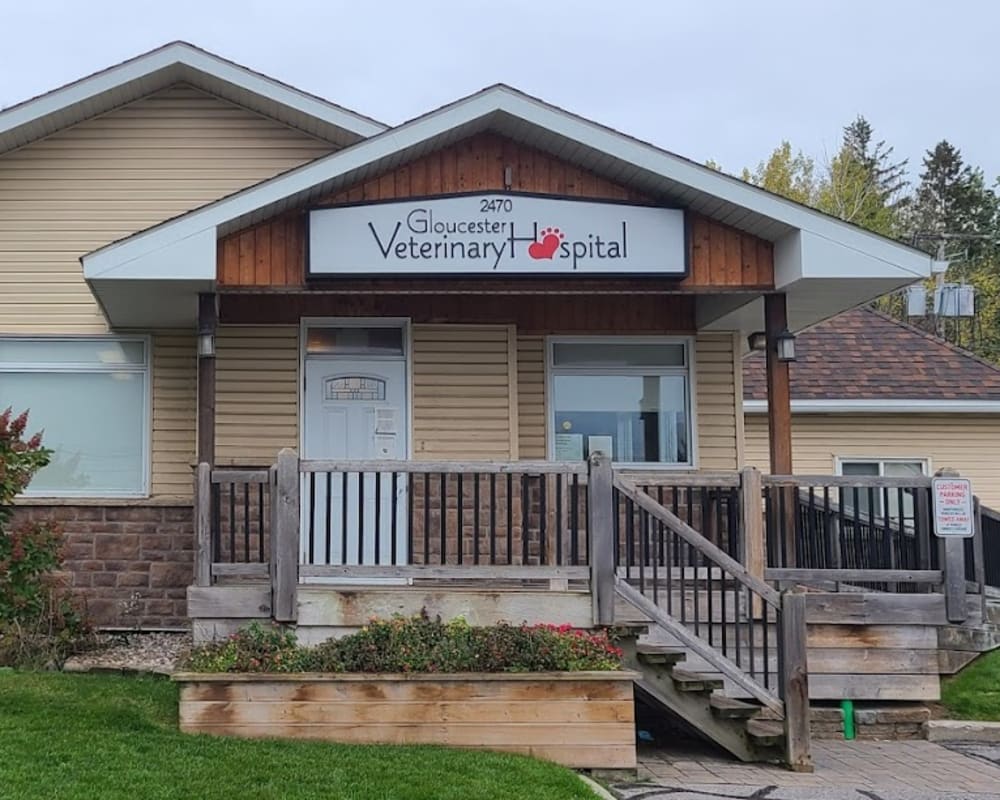Quality, Integrity, Compassion & Service
We are a full-service animal hospital that offers comprehensive diagnostic, medical and surgical services for cats and dogs.
Welcome to Gloucester Veterinary Hospital
We offer a full range of medical services to meet the health care needs of cats and dogs in Orléans, Rockland, and throughout the east end of Ottawa.
Since our doors opened in 1985, we have cared for the ever-changing veterinary needs of dogs and cats. What started as a family home has turned into a place where clients can feel confident that their dogs and cats are getting the absolute best care.
Over the years, we have grown with the community, but always strive to maintain the original “family” atmosphere.
We know you will be very happy with our services. Our veterinarians and staff are devoted to staying on top of the latest diagnostics, treatments, and wellness programs to maintain your pet’s optimal health. Let’s work together to keep your beloved furry friend happy and healthy!

Comprehensive Pet Care Options
We are committed to your pet's lifelong good health. We provide all the services your dog or cat needs to stay happy and healthy. From their first round of vaccinations to caring for their joints when your beloved companion starts to slow down with old age, we are here for them.

-
Lab & Diagnostics
-
Surgery
-
Internal Medicine
-
Senior Pet Care
-
Puppies & Kittens
-
Emergency Care
Veterinary Care with a Hometown Feel
Gloucester Veterinary Hospital is located on St. Joseph Blvd. across from Dussere St. We proudly serve cats and dogs from Orléans, Convent Glen, Orléans SW, Queenswood Village, Queenswood Heights, Avalon, and across Ottawa's east end.
Hours of Operation
- Monday:08:00 am - 07:00 pm
- Tuesday:08:00 am - 05:00 pm
- Wednesday:08:00 am - 05:00 pm
- Thursday:08:00 am - 07:00 pm
- Friday:08:00 am - 05:00 pm
- Saturday:Closed
- Sunday:Closed

